Mental resilience for displaced children through martial arts and play


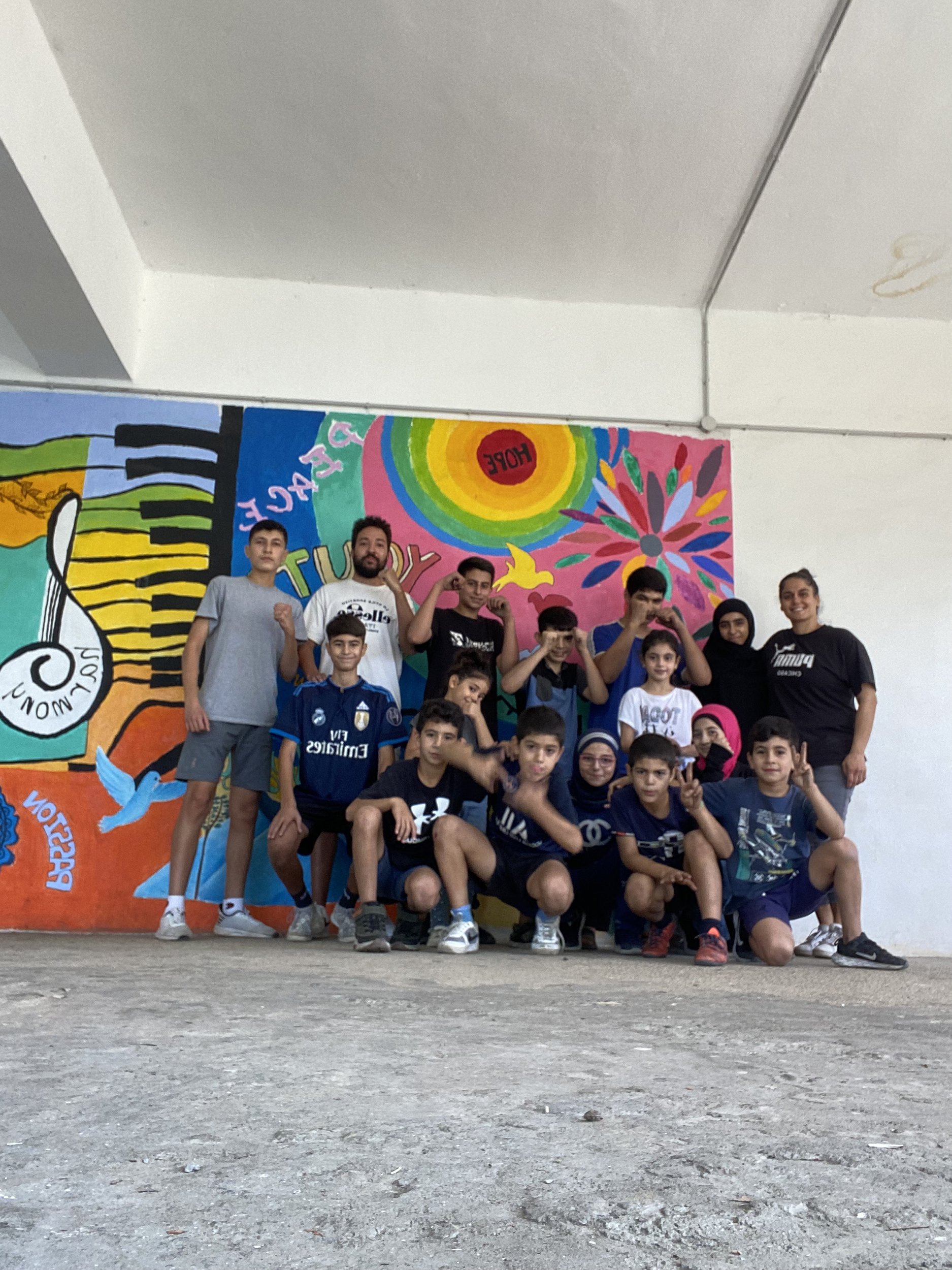
Throughout 2024 there was a war on Lebanon which escalated greatly in late September leading to the displacement of about one million people. Many sought shelter in schools or other available spaces. During this period I worked with children displaced by the war on their towns and neighborhoods in two locations. One was a school and one was a night club. We had to improvise to find places to train, a yard, a parking lot. We had to overcome the fear of new airstrikes, ignore the sounds of drones flying above, and the tension of not knowing what was to come. Many of them had lost loved ones or homes. Their parents were stressed or scared, their living conditions uncomfortable or humiliating.
We played games to keep them physically active and worked on martial arts to excite them. It was challenging to work in an ongoing crisis where the trauma was not in the past but in the present but it was also rewarding to see their smiles and hear their laughter and see them waiting for me to show up. I think self defense and martial arts training can be very valuable tools for children going through these situations, and this approach deserves more study and application.
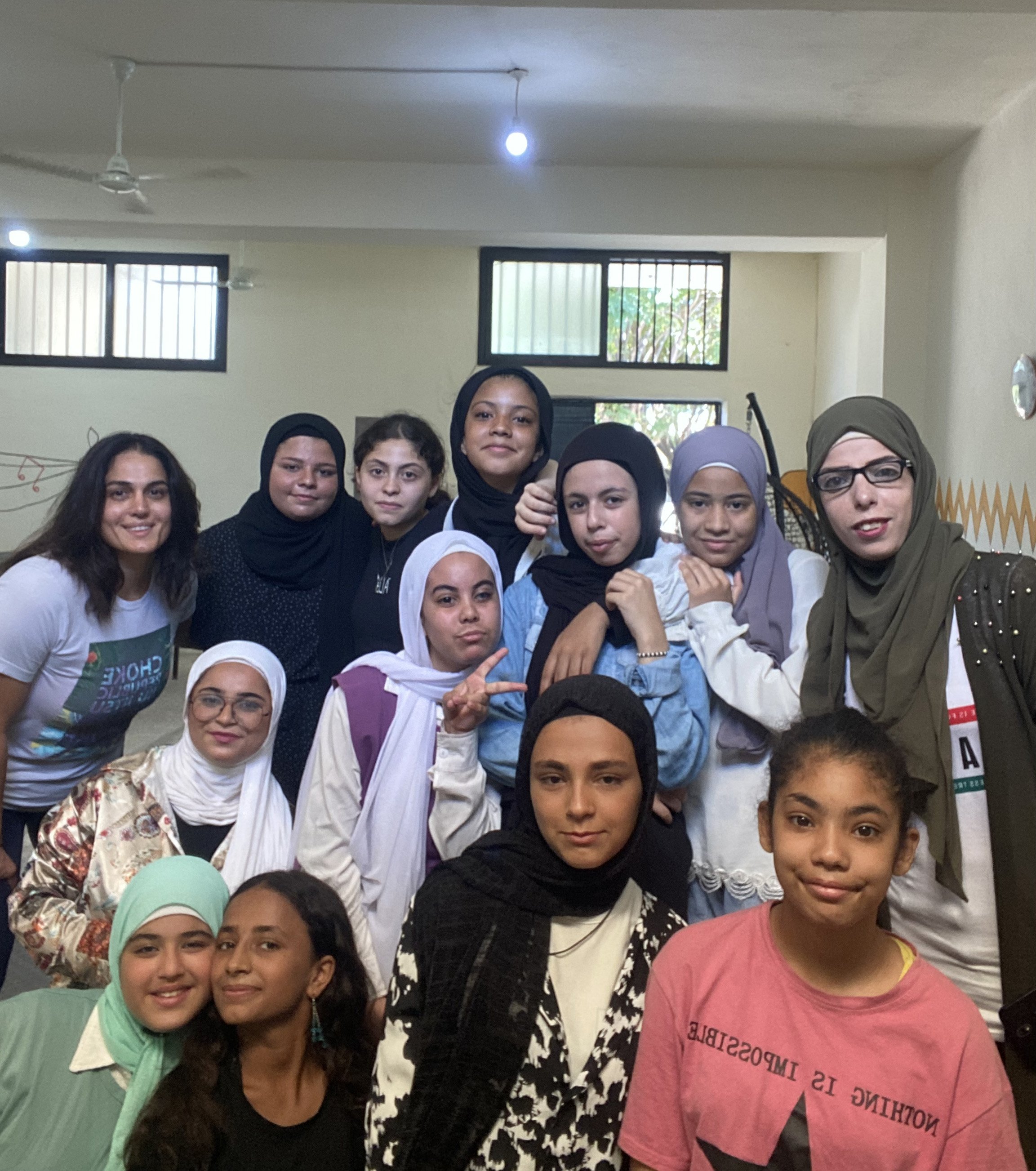
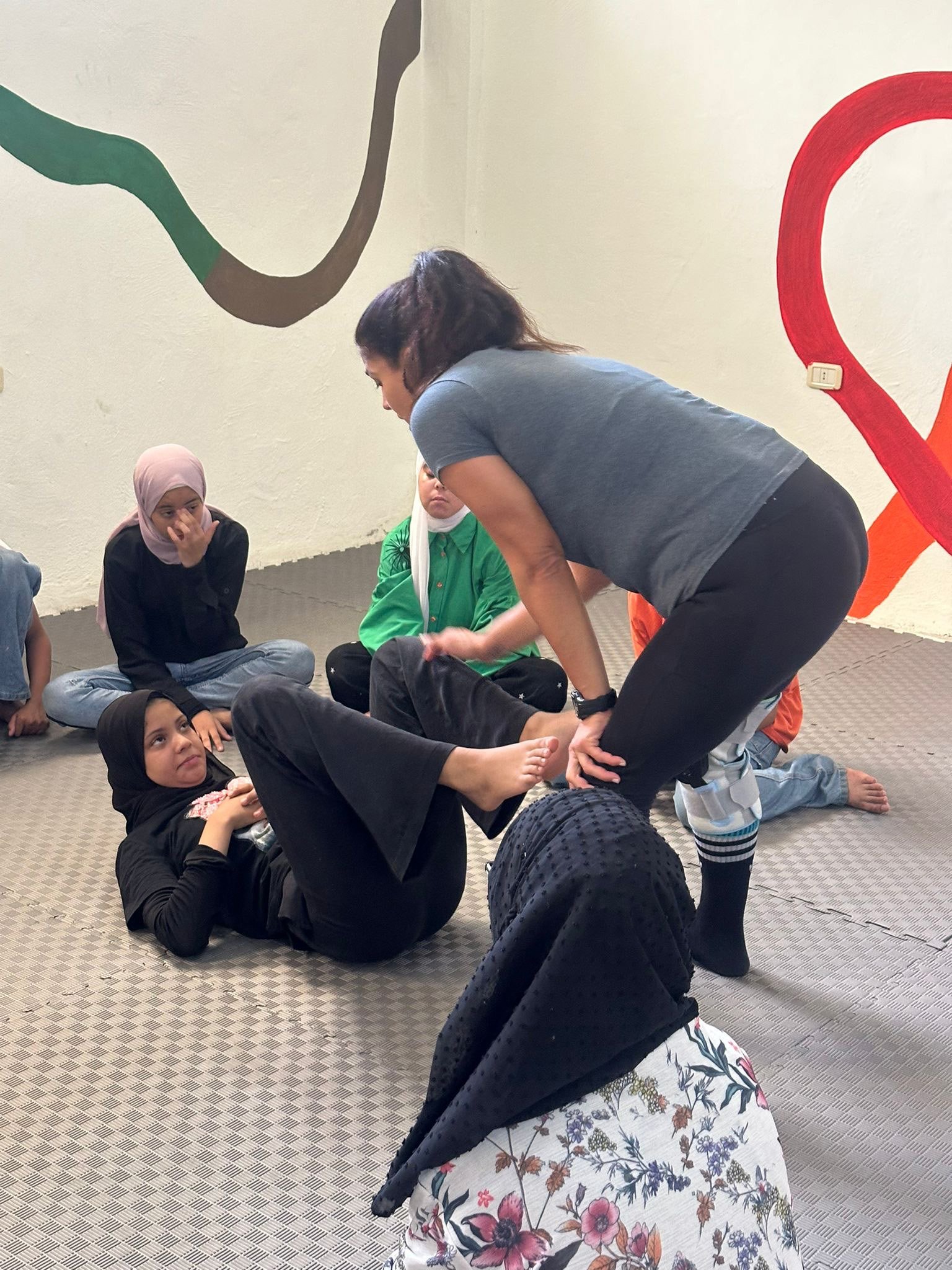
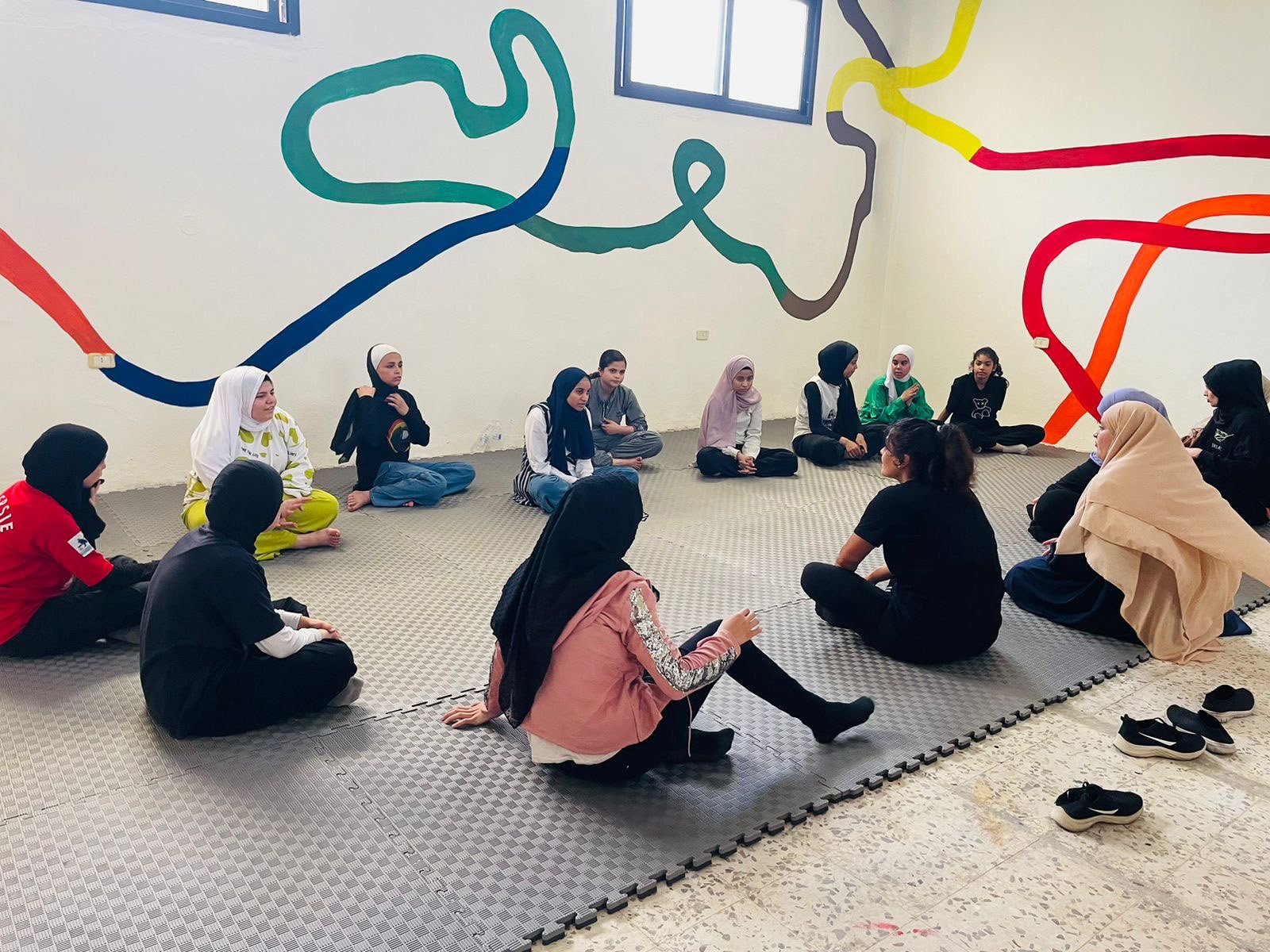
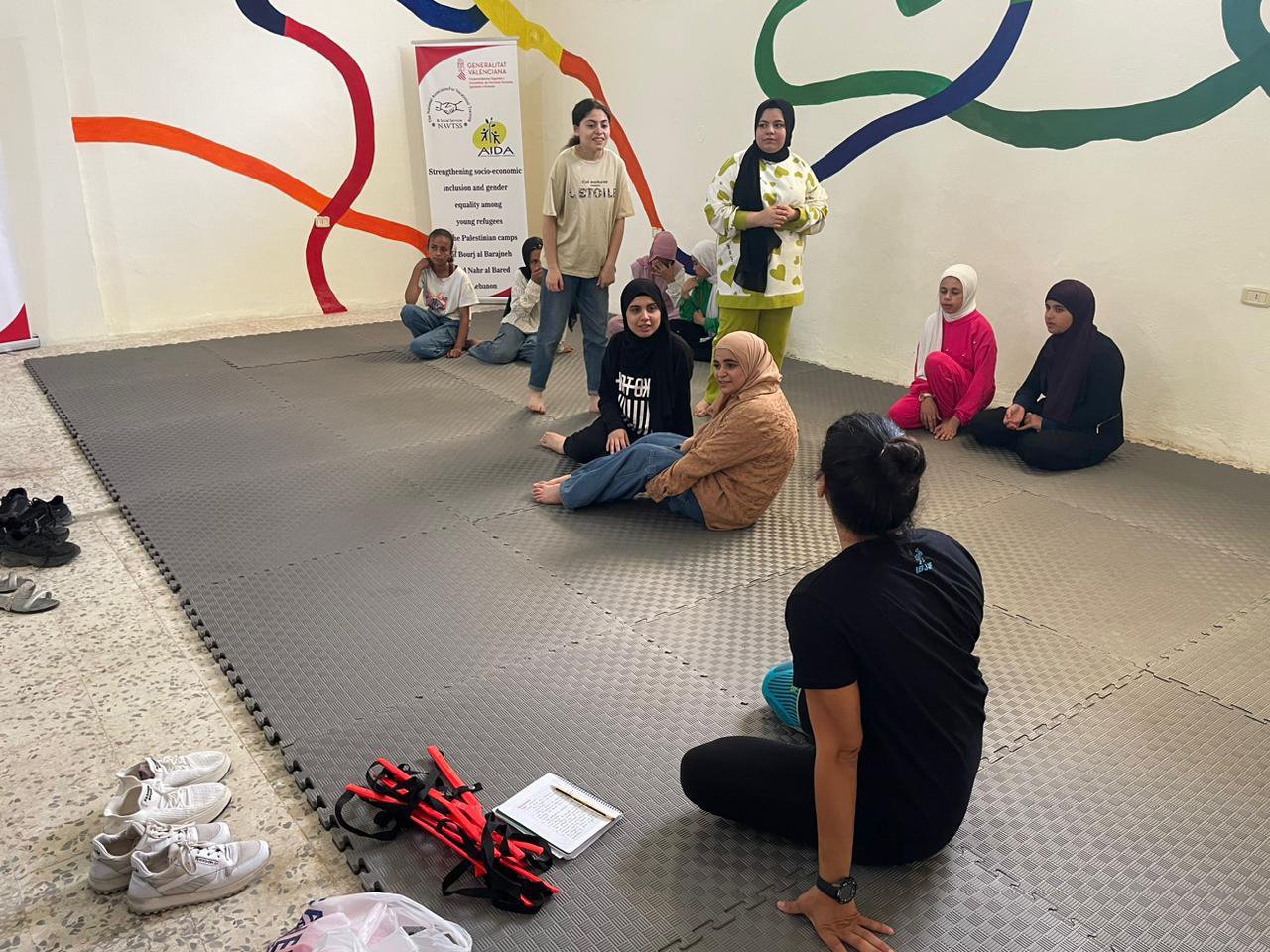
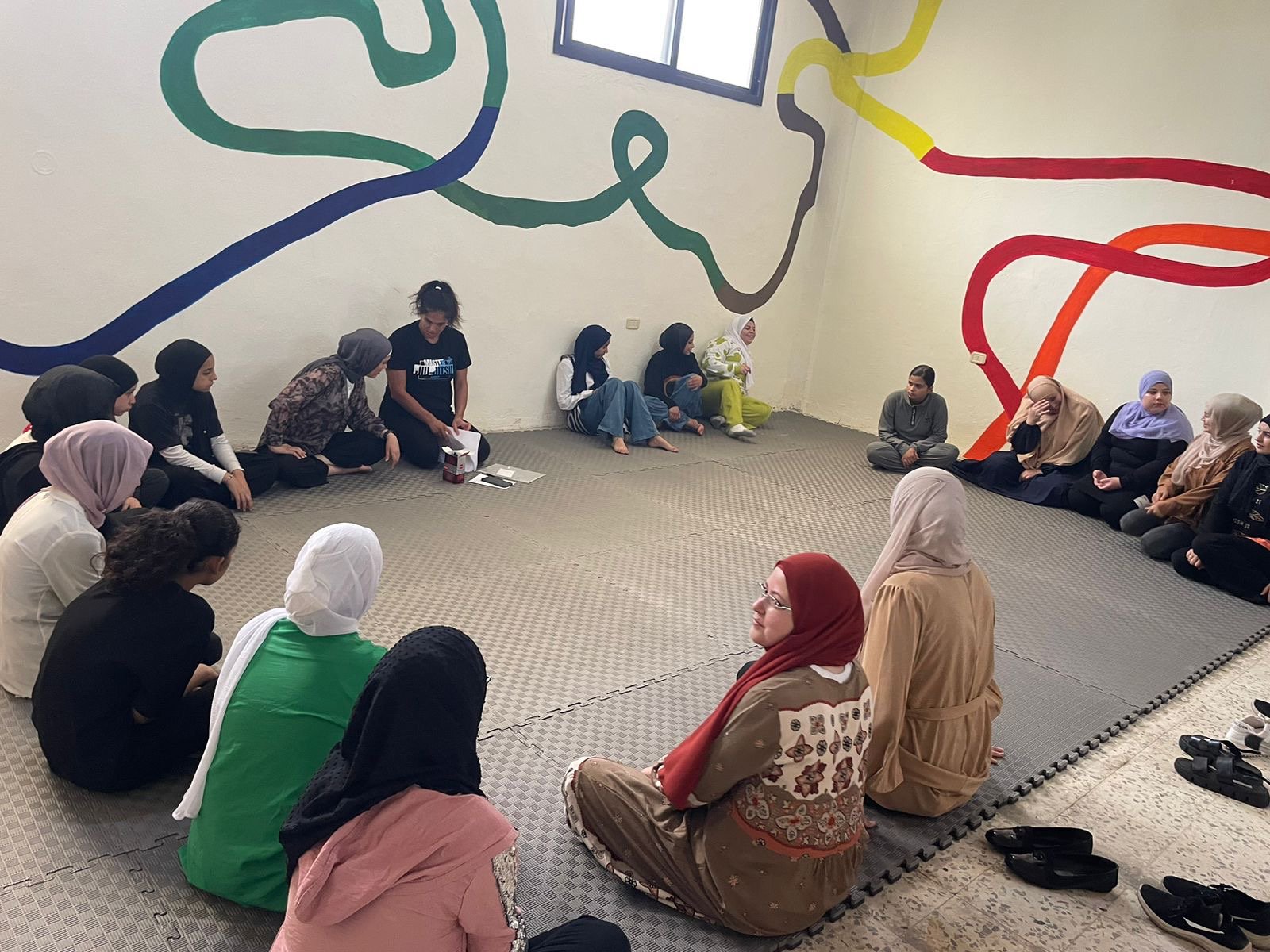
Anat partnering with Navtss
Over the course of two months, I worked with 30 girls aged 12 to 22 from Nahr el Bared refugee camp in northern Lebanon and Burj El Barajneh refugee camp in Beirut. The program combined physical training, self-defense techniques, and open discussions about various topics—ranging from their dreams and aspirations to understanding fear and how our bodies react to it. The experience was both impactful and inspiring.
For these girls, many of whom face societal restrictions and lack the freedom to play outdoors, the program offered a safe space to explore their physical and mental strengths. It encouraged them to embrace their bodies, build self-confidence, and discover their potential. By assigning leadership roles and fostering teamwork, the program also gave a voice to those who had been bullied, empowering them to express themselves and collaborate with others.
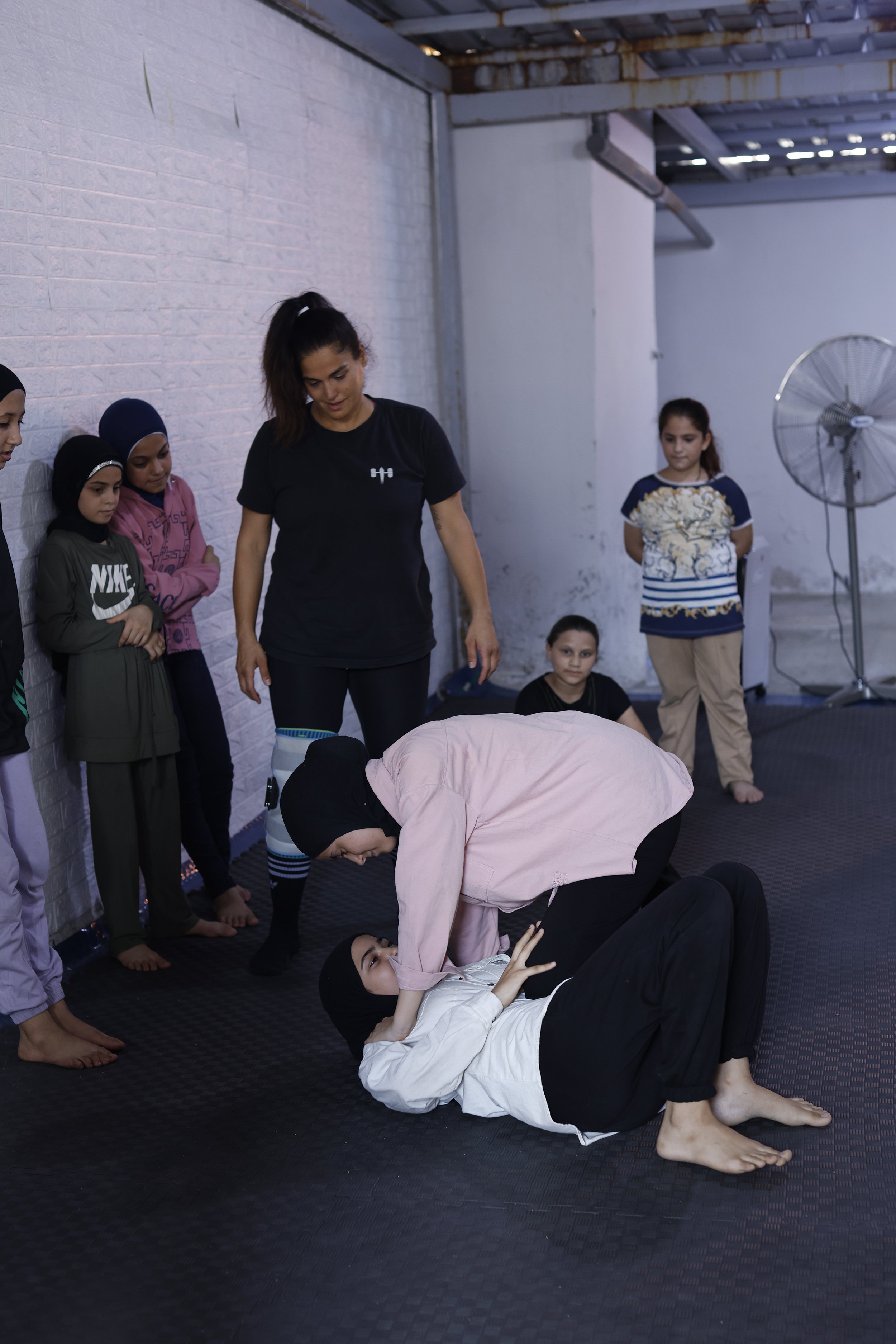
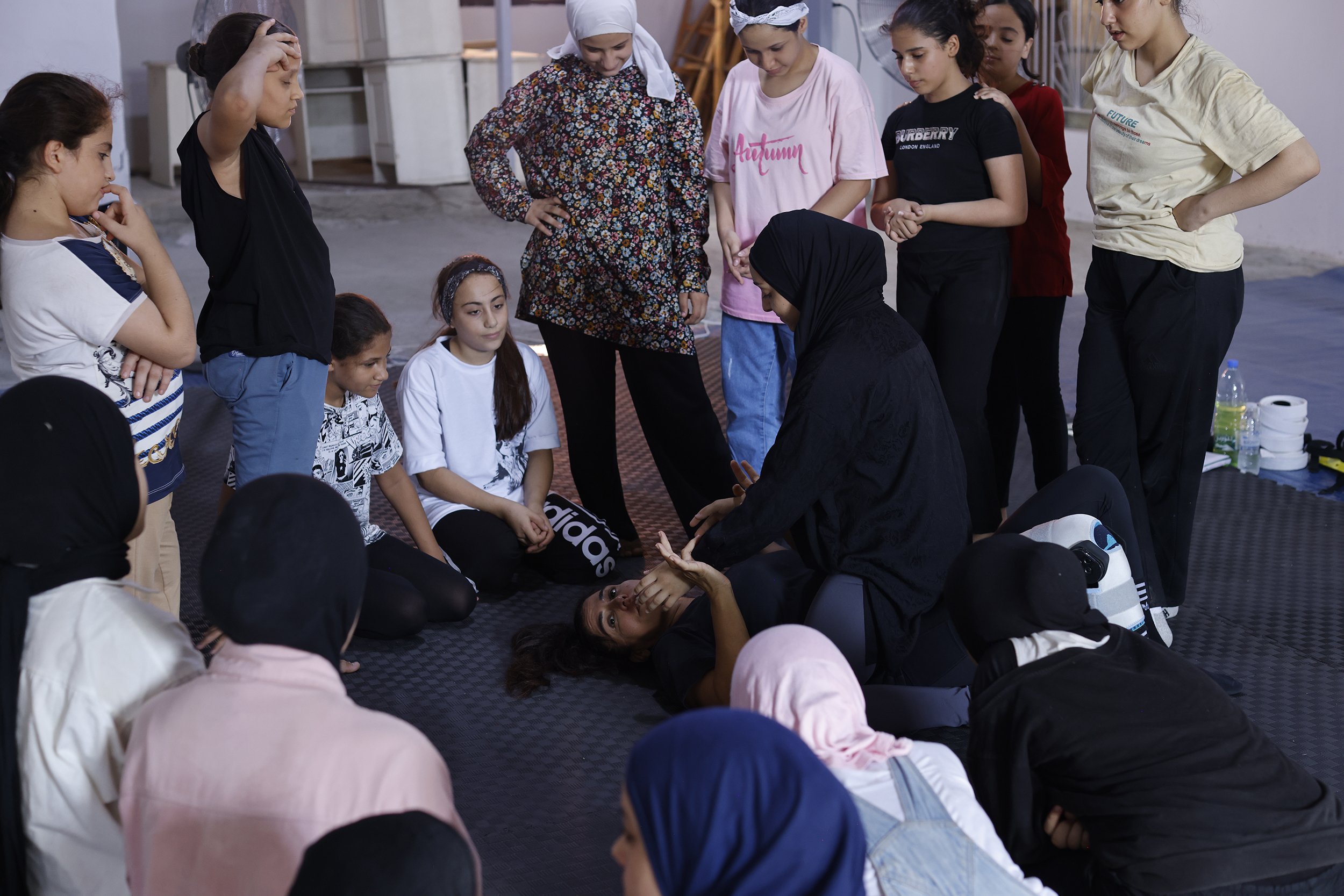

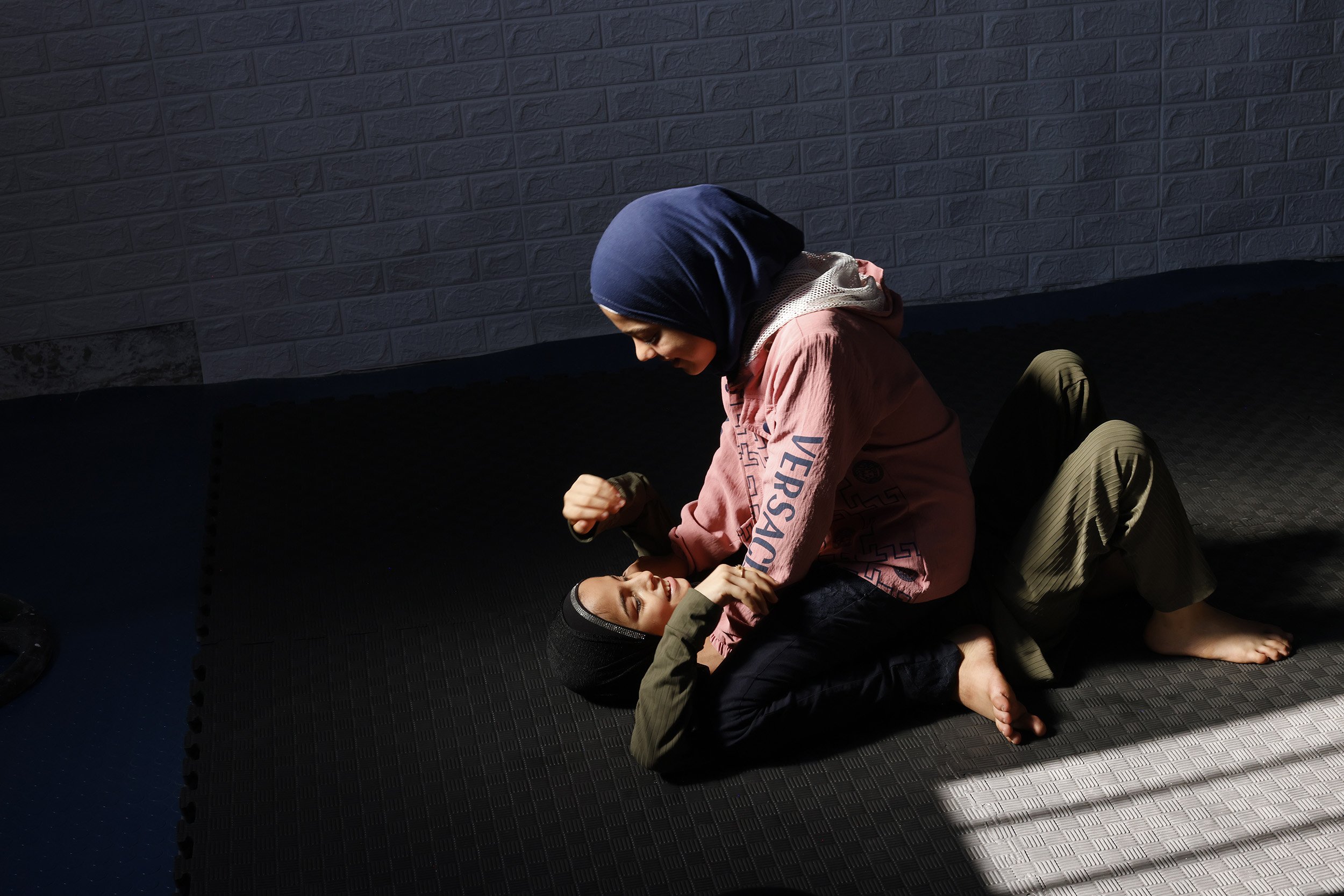
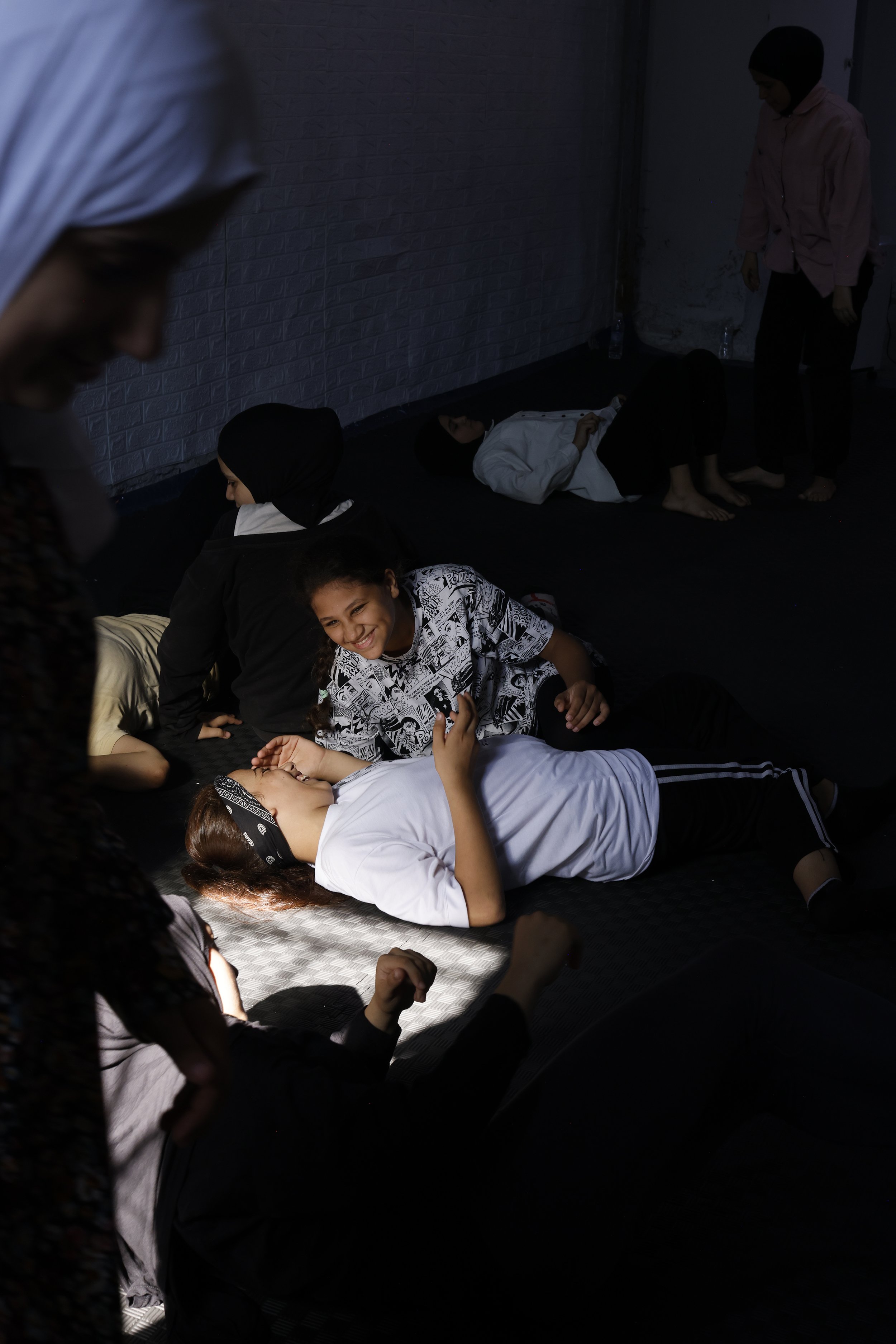

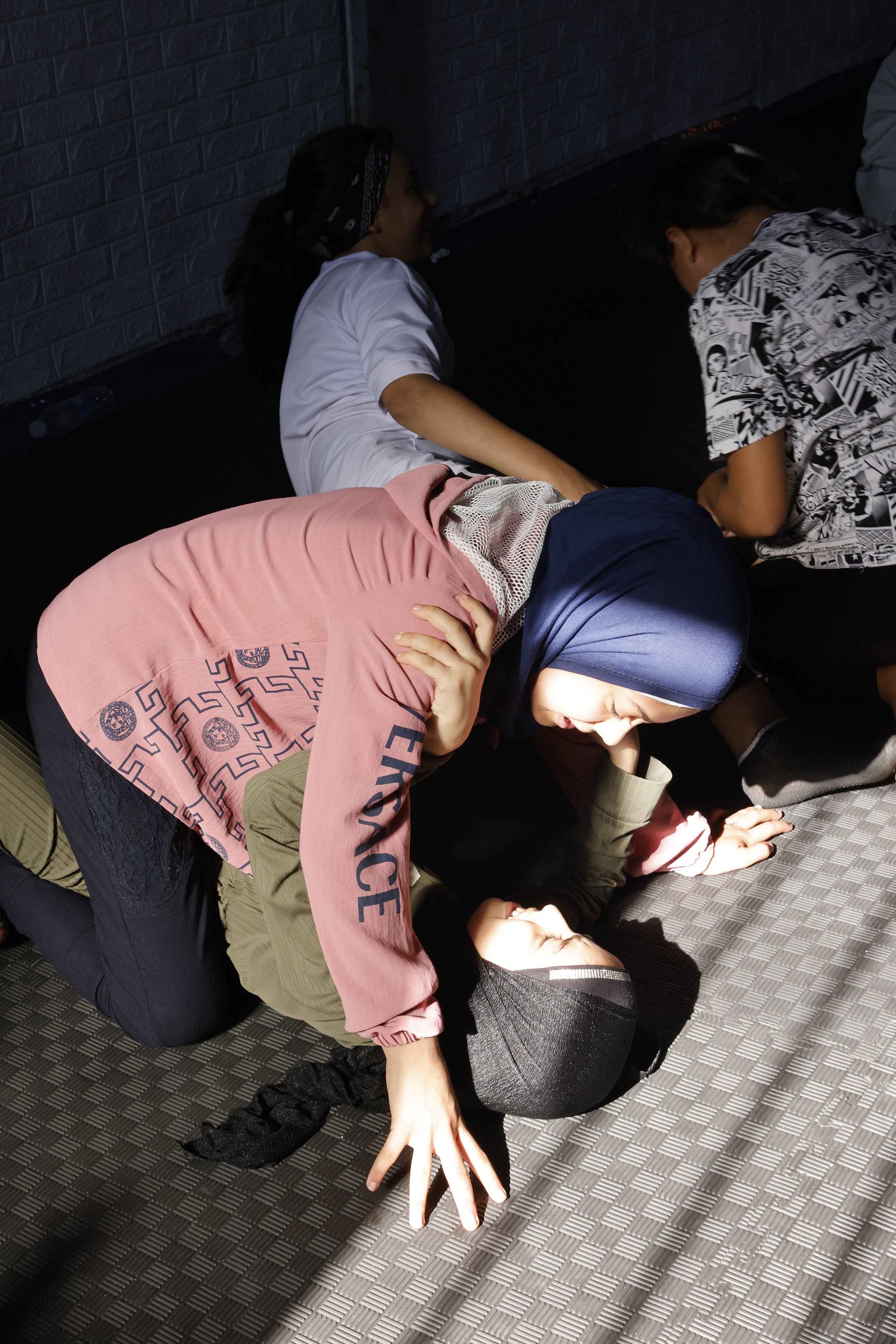



International Rescue Committee (IRC)
The International Rescue committee team decided to empower all their female field workers operating in northern Lebanon (Akkar), eastern Lebanon (Zahle), and central Beirut (Achrafieh) by equipping them with basic self-defense skills.
These included maintaining a safe distance both while standing and on the ground. The training emphasized that their primary goal is always to escape rather than engage in confrontation. All the women showed incredible dedication and motivation to learn, realizing their own strength and how small, practical techniques could help them escape dangerous situations. This newfound confidence and awareness will enable them to carry out their work safely and with greater self-assurance in the field.
Our Lady Of Hope Foundation
Empowering the next generation is not just about physically empowering girls; it's about building inner strength to overcome life’s difficulties. This aspect is particularly important for girls dealing with challenging backgrounds.
Self-Defense Workshop: Championing Women's Safety Against Violence
On the International Day for the Elimination of Violence against Women, I had the honor of collaborating with Caritas Lebanon and Caritas Ambrosiana for a self-defense workshop. As a Lebanese Jiu-Jitsu World Champion, I joined forces with them in their 16 Days of Activism against Gender-Based Violence. Our focus was clear: empowering migrant women, particularly those residing in one of the secure shelters, equipping them with crucial tools for self-protection.




Humanitarian Dialogue
The Switzerland-based Centre for Humanitarian Dialogue (HD) wanted to prepare their Lebanon team for the various dangers they might encounter while working in the field. In a fun and secure environment, the team learned the basics of self-defense, including controlling space, falling safely, standing up tactically and defensively, elements of ground fighting, and even choking techniques. It was a concise but impactful two-hour introduction to self-defense.



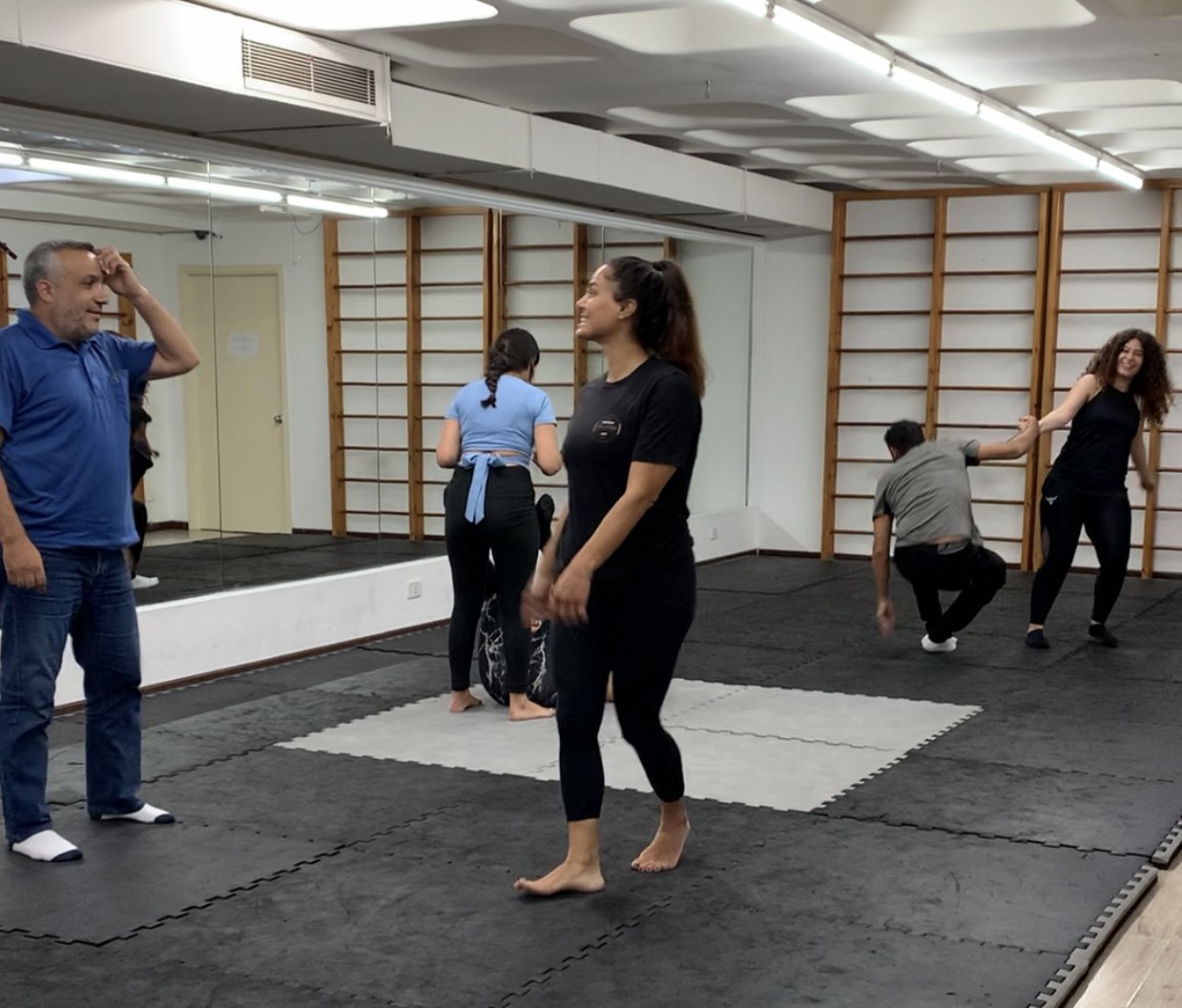
Empowering Youth Through Jiu-Jitsu: Transforming Lives and Shaping Futures
No matter how daunting life appears, there's always a choice: to be shaped by the world's challenges or to become a force that shapes it! I had the privilege of organizing, leading, and teaching around 90 underprivileged kids, aged 6 to 14 years old in a one month seminar. Witnessing their enthusiasm and eagerness was incredibly moving.
My mission is clear: to use Jiu-Jitsu to give hope and inspiration to as many kids as possible. Across the globe, Jiu-Jitsu has been a transformative force, rescuing youth from the clutches of streets, drugs, and crime. It's not just a sport; it's a way of life and a community.
Empowering Palestinian Girls Through Self-Defense: A Journey of Strength and Resilience
Partnering with NAVTSS, I had the incredible opportunity to design and lead a self-defense program tailored for young Palestinian girls from Lebanon’s Bourj Al Barajneh camp. This initiative was more than just a series of activities – it was a journey. Our focus was twofold: nurturing their self-assurance and equipping them with physical and emotional self-defense skills. Through Jiu-jitsu, we aimed to sculpt not just their bodies but also their minds, fostering resilience and inner strength. Each session was more than practice; it was a safe haven for open discussions. We delved into their world, addressing their concerns and experiences, whether personal or within their community. This helped them heighten their awareness, stay vigilant, and learn the right responses to specific situations. It also produced competitors and teachers, meaning it increased their opportunities. Witnessing the transformation was incredibly fulfilling. Our academy evolved into a sanctuary, a place where these incredible girls could freely express themselves, fostering a sense of safety and comfort.
Embracing Empowerment at Fairtrade
I conducted a workshop at Fairtrade Lebanon, a non-profit organization dedicated to transforming lives in rural areas through agriculture. Teaching these remarkable women was an absolute delight! I introduced them to the myriad benefits of learning Jiu-Jitsu – from self-defense and physical fitness to boosting self-confidence, self-esteem, and assertiveness. Beyond fostering a supportive community, Jiu-Jitsu cultivates discipline, focus, and perseverance. Jiu-Jitsu, as I highlighted during the workshop, offers a comprehensive approach to women’s empowerment. It addresses not just the physical but also the psychological aspects of personal growth. By arming women with essential tools, skills, and a resilient mindset, Jiu-Jitsu significantly contributes to fostering empowered and self-assured women.






















Building Strength and Security: Tailored Self-Defense Programs
Introductory Workshops
My Introductory Workshops provide a practical foundation in self-defense, focusing on essential skills such as maintaining distance, situational awareness, and breaking free from common holds. These short sessions are designed to give participants the tools to feel more confident and secure in everyday situations.
Comprehensive Self-Defense Programs
My Comprehensive Self-Defense Programs offer a deeper dive into self-protection skills, combining progressive training in martial arts like Jiu-Jitsu with mental preparedness and physical conditioning. Participants build resilience over time, mastering techniques and strategies to handle a variety of real-life scenarios with confidence and decisiveness.
Customized Workshops
I offer Customized Workshops tailored to meet the specific needs of diverse groups, such as women, youth, corporate teams, or humanitarian workers. These sessions are designed with the unique challenges of each group in mind, ensuring participants gain the practical skills and empowerment needed to navigate their specific environments safely and effectively.
NGOs I collaborated with












